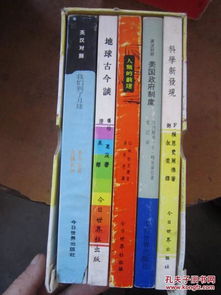美国文学选读第三版期末考试试题
Exploring American Literature: Subjective Analysis
American literature, a rich tapestry woven from diverse cultural threads, reflects the nation's complex history, values, and identity. From the early colonial period to contemporary works, American literature encompasses a wide array of genres, themes, and voices. Let's delve into some subjective analysis of American literature, exploring key themes, notable authors, and enduring works that have shaped literary discourse and cultural understanding.
1. Themes in American Literature:
American literature encompasses a myriad of themes that resonate with the human experience across time and space. One prominent theme is the quest for identity and belonging. From the struggles of immigrants seeking a new life in the "land of opportunity" to the existential angst of individuals grappling with their place in society, American literature often explores the complexities of selfdiscovery and cultural assimilation.
Another recurring theme is the pursuit of the American Dream. This quintessential aspect of the national ethos represents the belief in upward mobility, success, and selfimprovement. However, American literature also interrogates the darker undercurrents of this dream, examining issues of class inequality, racial discrimination, and the disillusionment that accompanies unfulfilled aspirations.
Nature serves as both a backdrop and a character in American literature, embodying themes of wilderness, freedom, and the sublime. From the transcendentalist writings of Ralph Waldo Emerson and Henry David Thoreau to the ecoconscious poetry of contemporary authors, the natural world in American literature often symbolizes a sanctuary for spiritual renewal and reflection.
2. Notable Authors and Works:

American literature boasts a pantheon of influential authors whose works have left an indelible mark on the literary landscape. Among the early pioneers is Washington Irving, whose "The Legend of Sleepy Hollow" and "Rip Van Winkle" helped forge a distinct American literary tradition.
Nathaniel Hawthorne, with his exploration of guilt, sin, and the puritanical psyche in "The Scarlet Letter," remains a towering figure of American letters. Similarly, Herman Melville's epic novel "MobyDick" delves into themes of obsession, fate, and the inherent darkness of human nature.
The 20th century witnessed the emergence of a diverse array of voices in American literature. F. Scott Fitzgerald's "The Great Gatsby" encapsulates the Jazz Age's allure and disillusionment, while Ernest Hemingway's spare prose in "The Old Man and the Sea" embodies themes of courage and existential struggle.
Toni Morrison, with her lyrical prose and unflinching exploration of race, gender, and history in works like "Beloved" and "Song of Solomon," reshaped the landscape of American literature and earned her a Nobel Prize in Literature.
Contemporary authors such as Toni Morrison, Cormac McCarthy, and Marilynne Robinson continue to push the boundaries of American literature, grappling with pressing issues of our time while expanding the canon with their distinctive voices and narratives.
3. Guiding Insights and Recommendations:
For readers seeking to explore American literature, I recommend approaching it with an open mind and a willingness to engage with its complexities and contradictions. Start with foundational texts such as "The Adventures of Huckleberry Finn" by Mark Twain or "To Kill a Mockingbird" by Harper Lee, which offer poignant insights into race, identity, and morality in American society.
Don't hesitate to delve into the diverse voices within American literature, from the Harlem Renaissance writers like Langston Hughes and Zora Neale Hurston to contemporary authors like Junot Díaz and Jhumpa Lahiri, whose works illuminate the multiplicity of the American experience.
Consider exploring American literature through interdisciplinary lenses, examining how it intersects with history, politics, and cultural studies. Engage in critical conversations about representation, power dynamics, and the role of literature in shaping our collective imagination and understanding of the world.
Ultimately, American literature invites readers on a journey of exploration and discovery, challenging assumptions, expanding horizons, and fostering empathy and understanding across diverse perspectives and experiences.
In conclusion, American literature is a vibrant tapestry of narratives, themes, and voices that reflect the complexities and contradictions of the American experience. By delving into its rich legacy and engaging with its diverse array of authors and works, readers can gain valuable insights into the human condition and the everevolving landscape of American identity and culture.
This subjective analysis of American literature offers a glimpse into its multifaceted nature and underscores its enduring relevance and resonance in the literary world and beyond.
关键词:美国文学第三版pdf百度云美国文学第三版主观题答题技巧美国文学第三版pdf美国文学第三版主观题答案美国文学选读第三版期末考试试题
上一篇:教育行业分为几大类又包括几小类
下一篇:早教中心有园长吗
